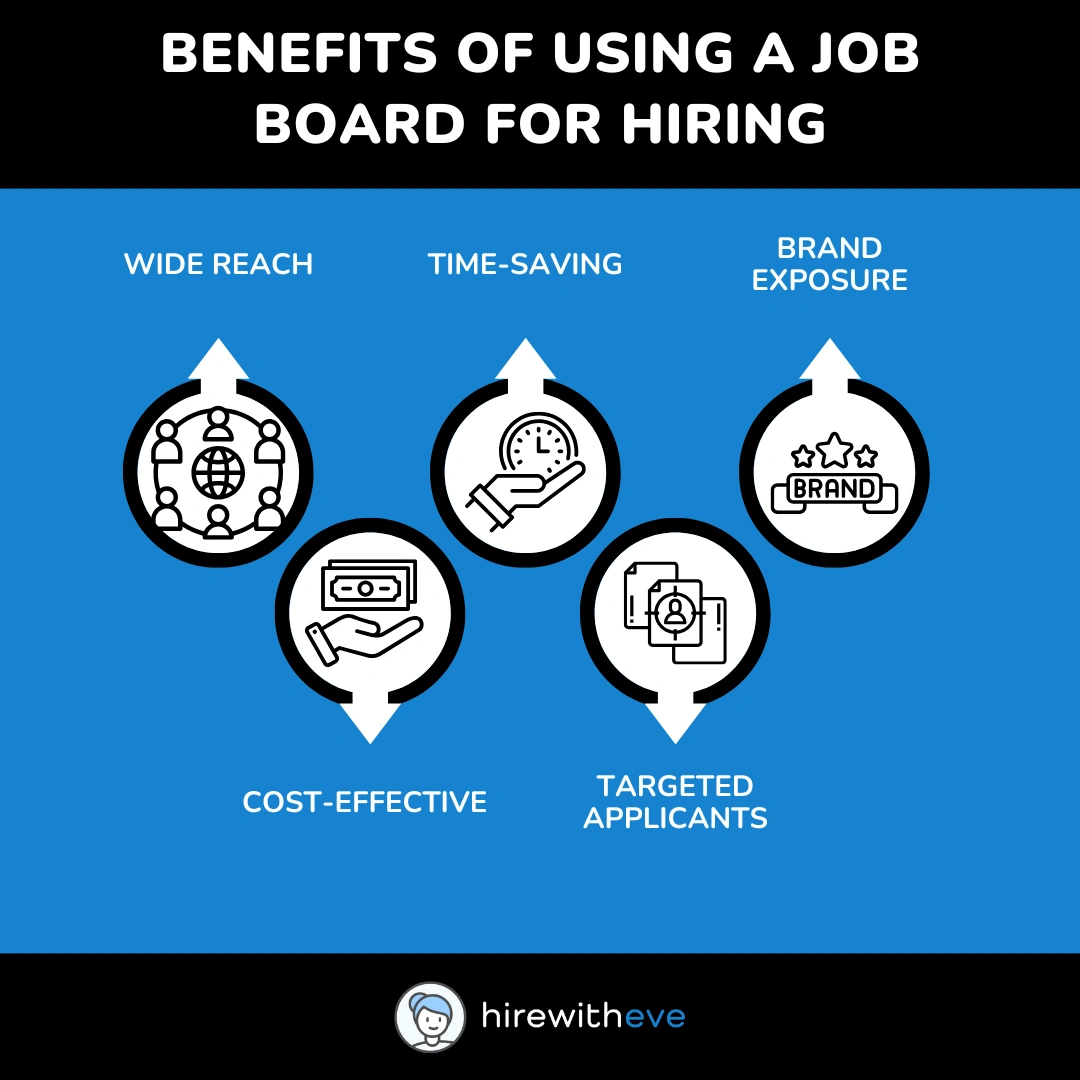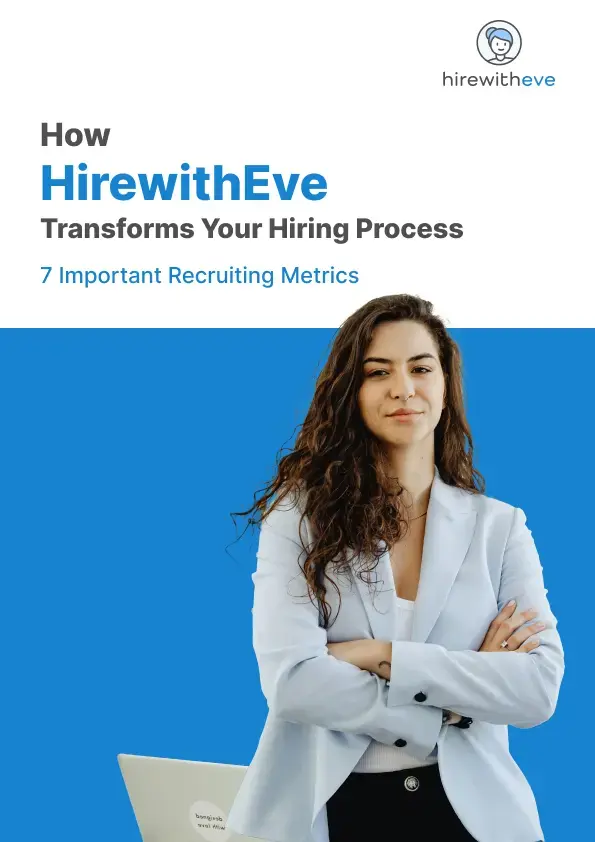What Is a Job Board? All You Need to Know
What Is a Job Board? All You Need to Know

In the fast-paced world of talent acquisition, the way companies find and connect with candidates has dramatically shifted. The rise of digital tools has made it easier than ever to source talent from all over the globe, but at the heart of modern recruitment efforts remains the job board.
Whether you are a talent acquisition specialist or an HR manager, knowing how to leverage a job board can make the difference between a seamless hiring process and one filled with obstacles. In this blog, we’ll explore what a job board is, its types, and how you can maximize its use in your hiring strategy.
Table of contents
What Is a Job Board?
A job board is an online platform where employers post job vacancies, and job seekers apply for these positions. It serves as a meeting point for recruiters and potential candidates, streamlining the process of talent acquisition. Job boards come in various forms, ranging from large general platforms like Indeed and Monster to niche-specific job boards targeting certain industries or skills.
For HR managers, using a job board is one of the most effective ways to find candidates who are actively searching for jobs. By listing positions on a job board, recruiters can reach a large audience of candidates, helping to fill roles more quickly.
Types of Job Boards
There are different types of job boards that cater to various recruitment needs. Understanding which type of job board best suits your company’s requirements can improve the quality of applicants and shorten the time it takes to fill a vacancy.
General Job Boards: These are broad platforms such as Indeed, Glassdoor, and LinkedIn, where companies can post any type of job. General job boards attract millions of job seekers and offer wide visibility.
Industry-Specific Job Boards: Platforms that cater to a specific industry or niche. For example, Dice is a job board focused on tech roles, while Mediabistro specializes in media and communications jobs. These job boards are ideal for sourcing candidates with specialized skills.
Internal Job Boards: Some companies also create their own job boards for internal job postings, allowing existing employees to apply for new positions within the organization.
Freelance and Gig Job Boards: As the gig economy continues to grow, freelance job boards like Upwork and Freelancer are becoming more popular. These job boards cater to short-term contract or freelance work.
By choosing the right job board for your hiring needs, you can improve the quality and relevance of the candidates who apply for your job listings.
Benefits of Using a Job Board for Hiring
Using a job board as part of your talent acquisition strategy offers several key benefits.
Here are some of the reasons why every HR manager and recruiter should consider utilizing job boards:

Wide Reach: Job boards provide access to a large pool of candidates, increasing the likelihood of finding the right match for your open positions.
Cost-Effective: Many job boards offer affordable pricing structures, allowing companies to post jobs for a set fee or even for free in some cases.
Time-Saving: Job boards automate many aspects of the hiring process, from collecting applications to sorting resumes. This frees up time for recruiters to focus on candidate evaluation.
Targeted Applicants: By using niche job boards, you can attract candidates who already have the specific skills and experience you need, reducing the time spent screening unqualified applicants.
Brand Exposure: Posting on a job board increases your company’s visibility to job seekers, helping you build your employer brand.
How Job Boards Have Evolved?
The modern job board has evolved significantly from its early days. Originally, job boards were little more than online bulletin boards where companies posted job descriptions, and candidates sent in applications via email or a simple form. Today’s job boards are much more sophisticated, offering a variety of features designed to improve the recruitment process.
Advanced Search Capabilities: Candidates can now filter job listings by industry, location, salary range, and more, ensuring they only see jobs that fit their criteria.
AI-Powered Matching: Many modern job boards use artificial intelligence (AI) to match candidates with the jobs that best fit their skills and experience.
Mobile-Friendly Platforms: With more job seekers using their smartphones to search for work, most job boards are optimized for mobile use.
Social Integration: Job boards now integrate with social media platforms, allowing job seekers to share listings with their networks and giving recruiters access to a wider audience.
Remote Work Listings: The rise of remote work has led to the creation of job boards dedicated specifically to remote opportunities, making it easier for recruiters to tap into a global talent pool.
Tips for Using a Job Board Effectively
To get the most out of a job board, talent acquisition specialists and HR managers should follow these best practices:
Craft Engaging Job Descriptions: Your job listing should be clear, concise, and engaging. Include relevant keywords to ensure your post appears in search results.
Use Keywords Strategically: Incorporating the right keywords into your job listing helps improve its visibility. For example, if you’re posting on a tech job board, make sure to include terms like “software developer” or “IT specialist.”
Choose the Right Job Board: Use a job board that aligns with your industry or the specific skills you're seeking. Niche job boards can provide a higher quality of applicants.
Engage with Candidates Quickly: Many candidates apply for multiple jobs at once. To secure top talent, engage with qualified applicants promptly and provide updates throughout the hiring process.
Leverage Analytics: Some job boards offer analytics on how your job post is performing. Use this data to refine your job listings for better results.
Conclusion
In today’s competitive talent market, using a job board effectively can make all the difference in finding the right candidates. While there are many job boards available, understanding how to leverage them is key to achieving success in your hiring efforts.
HirewithEve provides powerful tools that can complement your use of a job board. With features like skills-based assessments, remote hiring support, and AI-driven candidate matching, HirewithEve makes it easier to streamline your hiring process. Whether you’re posting jobs on a general job board or a niche platform, HirewithEve’s integrated features can help you identify the best candidates quickly and efficiently, making it the ideal platform for HR managers and talent acquisition specialists looking to stay ahead in the evolving world of recruitment.
By combining job board strategies with HirewithEve’s innovative solutions, you can take your talent acquisition efforts to the next level, ensuring you hire the best talent available in today’s job market.
Target Your Talent
Unlock tailored solutions for your recruitment and hiring needs with Eve Platform's extensive case study library.
Subscribe now to enhance your HR expertise and excel in your role.
Free Resources

Transforming Hiring: 7 Key Recruiting Metrics
Enhancing recruitment processes with data-driven insights for better hiring outcomes.

Reducing Hiring Bias with Hirewitheve.
Utilizing Hirewitheve to combat bias and streamline recruitment processes effectively.

Hiring Detail-Oriented Candidates
HirewithEve enhances hiring by accurately assessing candidate's attention to detail-oriented.
